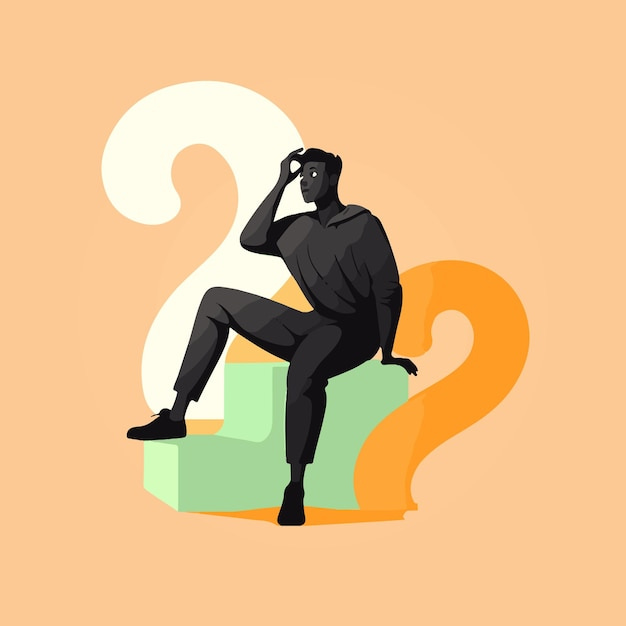FC 145 raised the question: Has laughter died? Going by the comments and the responses, it would appear not, but with some riders. ‘Laughing at yourself’ seemed to rate higher than ‘being laughed at’. Some readers also felt that when someone is laughed at that person could join the laughter or take umbrage, which was an indication of that person’s sensitiveness. Laughter is alive albeit a bit stifled.
Karthik says: “The advent and increasing popularity of social media coupled with mushrooming of nuclear families has killed the ‘humans are social beings’ factor. Meeting people physically and having hearty laughs came down to talking on phones and this has further deteriorated to just chats and messages. The conversations have ceased and emojis rule the roost in the world of communication. The saying that ‘laughter is the best medicine’ has disappeared into oblivion. Truly miss the good old days when life was less complicated and human bonding was valued.”
Ramana Sista says “Some jokes can be enjoyed in their original language only, and it loses flavour if translated, e.g., ‘Prasanna aisa jadugar hai, woh har Ithwar ko sab ko prasanna kartha hai.’”
Tarun Kunzru says: “A sense of humour is truly a gift. Loved reading this post and completely identify with it. A person with a wit and a great sense of timing always makes the most difficult situation or negotiation turn positive. It makes the world a better place and fertile for positive outcomes.”
Cdr. V K Santhanam says: “What should and was a natural human trait is being lost. To remember such natural behaviour someone has invented a DAY for each – Laughter, Love (valentine’s), Mothers, Fathers, et al.”
Ashvini Ranjan says: “In all my 45 years of marriage, I cannot predict my wife’s reaction to my jokes. I factor in her predisposition, preoccupation, and moods including the weather forecast. Yet the probability of thunder and lightning is very high. She defies ChatGPT in her ability to access historical records (more misdeeds than deeds) That, my friend, is not funny! You can laugh at my cost to keep the laughter alive!!”
🤔 On the Horns of Dilemma
On July 05, 2020, coaxed by my daughter & son (my wife chimed in), I embarked on the unfamiliar and challenging task of writing FC. I was not sure how long I would last but the encouragement I received from my readers kept me going, and I celebrated the first anniversary on June 27, 2021, with FC 52. I hope some of the readers who were not subscribed at the time will find that anniversary post interesting. 🔗Filter Coffee #052 - by M R Prasanna
On that day, I was unsure if I wanted to continue writing but was again egged on to stay the course. I plodded on and reached the 100 mark while holidaying in Meghalaya. FC 100 was aptly titled Taking to the Hills. If you missed it, here is the link to 🔗Filter Coffee #100 - by M R Prasanna
Soon thereafter came the second anniversary post FC 104 which I published on July 24, 2022 while I was in Atlanta GA, USA celebrating the birth of my granddaughter. Here’s the link, if you wish to browse 🔗Filter Coffee #104 - by M R Prasanna
FC 156 will mark the third anniversary if and when it is published. In fact, with this FC the countdown has commenced, 10 more. I am on the horns of a dilemma whether I should continue or take a hiatus after FC 156 or post FC once a month instead of once a week and so on. When I started the readership was around 500 and currently, it is more than 1300 thanks to more and more readers signing up.
The dilemma is about finding interesting stuff to share with readers week-on-week or alienating my readers whose association I cherish the most. Given my predicament, this post is all about ‘on the horns of dilemma’.
The word dilemma has its roots in the Greek language. Di means two and lemma means premises. Horns of Dilemma is presumably about a matador having to decide on tackling the bull by the left horn or the right horn knowing well that either option is fraught with the risk of being gored to death. The choice between alternatives that are equally unfavourable. The Romans called this an argumentum cornutum, or ‘horned argument’, because one could be caught on either horn.
The famous example, oft-quoted, is the question “Have you stopped beating your wife?”. An answer, either way, could be troublesome. Whilst ‘yes’ or ‘no’ to this question seem inevitable, there is the third possible answer “Never ever have I laid my hands on her”. This seems to suggest that one can find a way out of a dilemma if one is serious. Extending this logic to the matador’s dilemma, he could technically avoid both the horns of the bull but aim a stun gun at the spot between the horns.
It is quite obvious that choosing the lesser of the two evils or the better of two favourable options does not qualify as a dilemma but will be more in the realm of circumspection. (If you haven’t read my post on ‘Introspection & Circumspection’ please use this link 🔗Filter Coffee #121 - by M R Prasanna)
The moral dilemma is personal and can be quite agonising. In Sanskrit, it is called ‘dharma sankat’. This arises in a situation wherein a person has two possible actions in front of them but finds themselves unable to choose either of them. Such a dilemma is best depicted in “Sophie’s Choice” a 1979 novel by William Styron. The protagonist, Sophie is in a concentration camp, and is told that one of her two kids would be killed. She is made to choose the one she wants to survive, and if she did not choose, then both would be killed. The dilemma that Sophie faced is also referred to as a tragic dilemma. In 1982, this novel was made into a movie by the same name, featuring Meryl Streep. You may find it on YouTube.
We often hear the phrase ‘moral obligation’. In the context of a person facing a moral dilemma, a question may arise whether that person is obligated to choose one of two actions regardless of the consequence. Consider the dilemma of a person who had promised his father, an army officer who died in action, that he too would join the army. But when the time came to enrol, his mother fell seriously ill and needed him, the only son, to take care of her. The moral obligation to tend to his mother took precedence over keeping a promise. True, the person would feel guilty at not keeping up his word but derives comfort from knowing that his father would approve of the choice he made.
In a morally dilemmatic situation, you have two morally correct options, but both are not preferable. In an ethical dilemma, you may have two morally correct options, but one may be more problematic, ethically.
Professionals like Doctors face ethical dilemmas. They make difficult choices and yet experience emotional turmoil. Imagine a terminally ill patient’s heart stops beating. Should the doctor resuscitate her? What if she had made known her preference for DNR? Should a doctor save the baby or the mother from a serious pregnancy complication? Should a lawyer defend a person who he believes has committed a crime? Should a realtor sell a property knowing that it may soon be demolished for widening the road?
There are many such ethical dilemmas. But unlike other kinds of dilemma where either course of action would be unfavourable, in the case of moral dilemma, the obvious course is to do what is ethical. The opposite of a dilemma is a win-win situation. We often find ourselves having to choose between two options, both favourable. It is a good place to be, as either option would work in a given situation. More often than not we find ourselves calling it a dilemma when two equally favourable options are in front of us, and we have to pick one.
I hope you guys liked this post. If you are in a dilemma about whether to say yes or no, you can simply press the like button out of politeness. Now in a lighter vein:
Q: What is the difference between a philosopher and a dentist?
A: dentist helps you solve ‘molar’ dilemmas







Wah Pras.
Keep it up.
in Kannada it is itta dari atta puli and it is between Scylla and the Charybdis
Scylla a six headed monster living on a rock on one side of a narrow strait. Charybdis a whirlpool. ships trying to avoid Charybdis,would pass near Scylla's rock and get devoured. or get sucked in if went near Charybdis.
can dilemma be considered as opposite of Hobsons choice.
Dilemma is a every day problem one way or the other, literally. Why should the way we opt is invariably the wrong one?
I do not know if should stop it or continue.